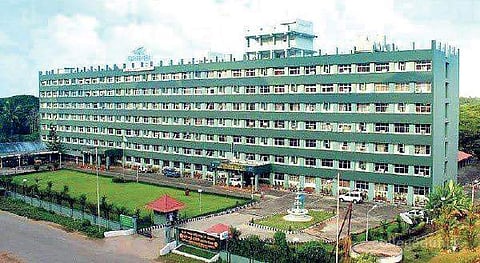

KOCHI: The open house, an exhibition-cum-education programme, held by the Central Marine Fisheries Research Institute (CMFRI) on its 71st foundation day the other day highlighted the impact of climate change in fisheries. Aimed at creating awareness among the public, the CMFRI displayed the research output of the study on climate change conducted under the scheme of the National Innovations on Climate Resilient Agriculture (NICRA).
Explaining the details of the study to the visitors who thronged to understand the latest developments in the marine research and enjoy the wonders of marine biodiversity, the scientists said there had been changes in scores of areas such as sea surface temperature (SST), chlorophylla, wind and rainfall, ocean current, spawning season, maturity, distribution and catch of various marine fishes owing to climate change.
They said the shift in distribution of commercially important fish resources affects the catch and thereby livelihoods and national economy to sustainable level.“Climate change coupled with the intense fishing pressure has an adverse effect in fisheries resources,” said P U Zacharia, project coordinator of the NICRA. Adaptive measures such as reducing fishing efforts, forestation of mangroves, farming of seaweeds and promotion of cage fish farming are the need of the hour, he said.
According to the NICRA study report, habitat mapping and ecological modelling could be done to prevent over-exploitation and manage climate stressors.During the open house, students and the public also got the rare opportunity to enjoy a ringside view of the secrets of marine life. As part of the programme, the National Marine Biodiversity Museum, various state-of-the-art laboratories, marine research aquarium, Agricultural Technology Information Centre (ATIC) and hatcheries were opened to the public.Awareness on dangers of dumping plastic wastes into water ecosystem was also stressed. The museum was the main attraction to the visitors.